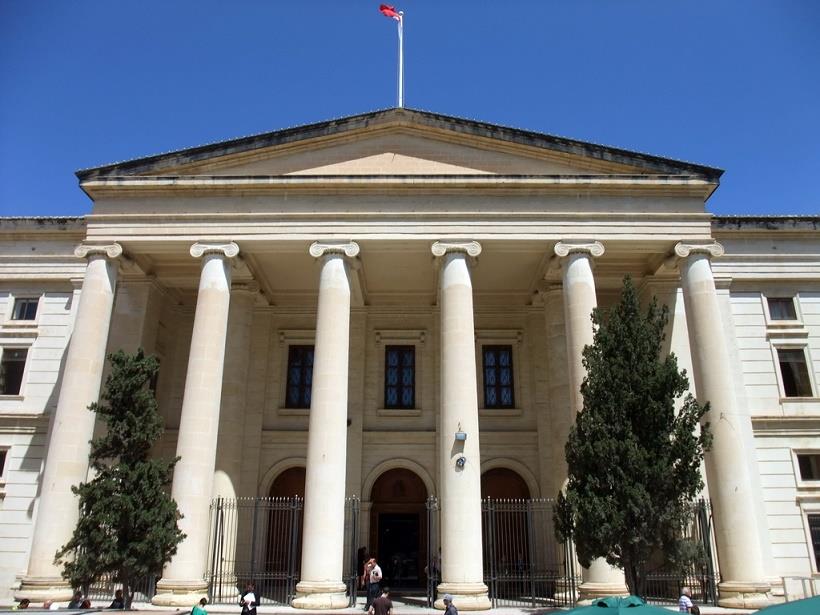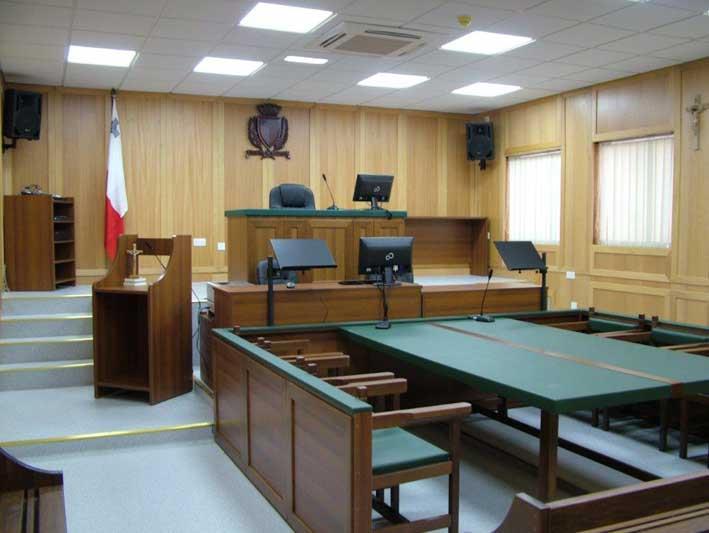A court application has been filed by a former employee of the Lotteries and Gaming Authority (now the Malta Gaming Authority, MGA) asking the court to recognise him as a whistleblower.
Valery Atanasov, a Bulgarian national, was employed with the Lotteries and Gaming Authority (LGA) between 2008 and 2015. Atanasov alleges that there were a number of irregularities and lack of enforcement by the regulator on said irregularities during his time employed there.
He alleged, through his court application presented by lawyers Dr Mark Refalo and Dr James D’Agostino, that the lack of enforcement on actions by licensed persons effectively rendered the Authority complicit with people who were breaking applicable laws and regulations.
Atanasov, who was employed as an IT Administrator, stated that he was also tasked with handling the process of ‘sealing’ servers of gaming operators. This process, he said, involves going on site to inspect the servers. A sticker would be placed on the server, which forms part of the gaming system, in order to know that the server is registered with a particular gaming company and has been certified by the LGA, he said.
He added that if a server was replaced, the company was obliged to inform the LGA to reseal the server. Such servers would, for example, include random number generators (RNG) which handle the randomness of certain online games. He said that according to the Remote Gaming Act 438.04, Art. 26 and 30 no changes to the gaming systems were allowed to be made without prior approval by the authority. In order to change it, the company would need to submit details regarding the new gaming system infrastructure that will be reviewed by the authority and, if approved, will have permission to install the new servers. Finally, the servers will be sealed (through the stickers) to confirm that the new servers can go live, he explained to this newsroom.
Atanasov bases his claim to whistle-blower status on irregularities which he says he noted during his employment. He alleges, for example, that in 2012, a gaming company had a number of server racks that had not been sealed as per LGA rules, and that he was told by the company’s key official that the server racks had not been sealed since 2008. He says that he reported this to his supervisor in order for disciplinary action to be taken, but instead, a few days later, the company was granted approval from the LGA to obtain new seals for the equipment.

He said that as far as he knows no disciplinary action had been taken. He said he was told that the company’s key official, a person entrusted with representing the gaming company, did not know the whole procedure and it was thus a genuine mistake, and no incident report had been sent. This, he says, was a serious shortcoming. In another instance, he alleges that a company was transferring its business to another gaming company without notifying the LGA, against the Authority’s procedures. He says that he informed other persons at the Authority, but is not aware of any action having been taken.
In another incident, he alleges that gaming taxes were 12 months overdue by a certain company and, rather than acting on his report, he was questioned as to where he had obtained this information.
He also spoke of other incidents, and highlighted certain key figures. He says that one former LGA employee went on to represent many gaming companies as a key official, and alleges that a number of problems arose with companies this person represented.
Atanasov has, in the past, spoken about the alleged irregularities at the LGA to the international press.

Atanasov, in the court application, says that he had filed a number of internal reports about irregularities, stating however that they had no effect and that the Authority allowed such acts to continue. The court application also read that Atanasov felt he had no other option other than to file reports with the Financial Intelligence Analysis Unit, the Permanent Commission Against Corruption and the Ombudsman about the irregularities.
Atanasov argued that the information given by him qualifies as protected disclosure and that he had disclosed such information in good faith. The application notes that despite Atanasov being a whistle-blower, the Authority proceeded to initiate “unjust disciplinary proceedings” against him, and fired him. The application also reads that the MGA has now initiated legal action against Atanasov, asking the courts to make him pay compensation for breach of confidentiality.
The application requests that the court declare that Atanasov has the status of a whistle-blower as per law. The application also requests that the court condemn and prohibit the MGA from continuing to take action or initiate procedures that could be of detriment to the applicant, and that the court order the MGA to provide an effective remedy for every detrimental action taken against him.
In response to this court application, the Malta Gaming Authority made a number of arguments.
The MGA has refuted all allegations being made by the applicant.

They allege that the Authority had given a number of warnings up until the final one on 20 January 2012, relating to inadequate work performance, insubordination, unjustified sick leave and incompetence. At the time, they said, his objections to the warnings were based on alleged discrimination and that he had not alleged criminal or irregular behaviour on behalf of the Authority.
The MGA argues that in December 2013, the Authority initiated disciplinary proceedings against him, which were concluded on 29 January 2015. It also notes that a second set of disciplinary proceedings began in July 2014 “for making false allegations against the Authority and its officials and employees”. The MGA notes that Atanasov was suspended pending these second procedures. The final decision on the second set of disciplinary proceedings was given on 1 September 2014, and the Board said: “Atanasov did not present any sort of evidence to substantiate the allegations he made during a hearing of a separate disciplinary panel on 8 July 2014, though he was requested to do so by this disciplinary panel. The board concludes that such allegations did in fact constitute wilful damage to the reputation of the Authority, employees or clients’ as they were made in front of an audience that does not form part of the LGA itself.”
The MGA notes that Atanasov’s employment was still not terminated after these proceedings, and opted to wait for the original disciplinary proceedings to conclude. This, the MGA said, shows that the termination of employment did not occur because of any allegations he had made, but was rather due to work performance. The MGA also states that it was towards the end of the first set of disciplinary proceedings that the applicant, in retaliation, and purely to damage the Authority began revealing confidential information to third persons, and began making false allegations.
On 26 June 2015, the applicant filed proceedings before the Industrial Tribunal, and the MGA said the applicant did not describe himself as a whistle-blower there. It was here, the MGA says, that the applicant began “increasing the dose of his attacks”, and contacted the international media making allegations and hiding facts.
The MGA alleged that this current court application was filed abusively and intended solely to stop his former employer from safeguarding their rights and that the allegations are false and were made to damage the authority’s reputation.
Ramona Frendo, Veronique Dalli and Andrew Saliba filed the response on behalf of the MGA.
In response to the MGA statements, Valery Atanasov denies having received a number of warnings related to incompetence.
Referring to the first disciplinary proceedings against him, he said that “from the chronology I am presenting to the Court, it is clear that the reports I had been trying to make pre-date these proceedings. Every time I would try to report, I would be punished in one way or another – for example my first report was on 31 January 2011, and coincidentally my first warning is dated 3 February 2011.”
He said it is untrue that he acted and revealed information in a vindictive manner with the intention of causing harm to the LGA and timed this towards the end of the first disciplinary proceedings, strongly insisting that his reports pre-date by a margin the disciplinary proceedings.
Atanasov said: “Seeing that the LGA took no action whatsoever on the reports I was making, and I had reason to believe that evidence was being cleared from within, I started putting two and two together and began linking the several players involved together. The LGA not only did not take action on my reports, reports that were serious enough to warrant suspension or even cancellation of gaming licences, let alone more serious things, but also decided to take action against me. The LGA was the Authority I had to report to, and rather than listen to me, an employee doing his duty, it took it out on me to appease two rather big players in the gaming industry.”
The first sitting in the case was held this week; however Madam Justice Miriam Hayman will now need to take a decision based on whether she should continue hearing the case. The MGA’s attorneys argue that the case should be heard by the same judge (Mr Justice Mark Chetcuti) who is currently hearing the case instituted by the MGA against Atanasov dealing with the alleged breach of confidentiality and damages for loss of reputation. Arguments were also made regarding the court’s ability to declare a person a whistle-blower.